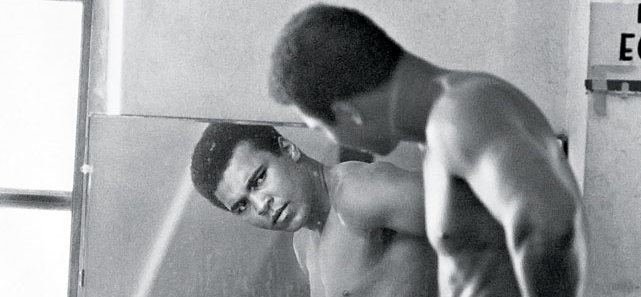The conflict at the heart of The LEGO Batman Movie wasn’t something I expected to be thinking about in a business context three days after I watched it, but here we are. (In truth, there are actually two surprisingly mature lessons in this film, which is two more lessons than I was expecting from a 2-hour toy commercial.)
It’s a Batman movie, so yes, the Joker launches a wildly nefarious plot… but (this being a kids’ movie, after all) his goal isn’t really to destroy Gotham. It’s to get Batman to admit that the Joker is his arch-enemy, which Batman refuses to do, because Batman refuses to admit that anybody matters to him at all.
That second point is really the driving force of the story. And, as driving forces go, it’s a solid example of the ideal plot: the protagonist’s internal conflict (Batman’s reluctance to admit that he needs other people in his life) causes the interpersonal conflict (by pushing the Joker away, the Joker only becomes more obsessed with forcing Batman to admit he needs him) which causes the external conflict (Joker’s efforts to get Batman to respect him cause a cataclysm that can only be stopped by… well, you can figure that out).
The part I keep thinking about as it relates to business is this:
You’re only as good as your competition.
They say a hero is only as good as the villain he’s fighting. What they don’t tell you is that the same holds true in life, in love, in art, and in business: we all need an arch-nemesis to fight.
Maybe it’s a rival brand. Maybe it’s a deadline. Maybe it’s the fear of being alone.
Whatever it is: if you don’t clearly identify your reason for action, you might as well quit before you start. Because you won’t be taking steps toward a goal; you’ll just be guessing at what might work. And guessing at solutions to a problem is bad enough, but guessing at what the problem itself is? That’s a recipe for living an unfulfilled life.
How Tough Is Your Rogues’ Gallery?
In the movie, one reason Batman keeps fouling off the Joker’s demands that he acknowledge they’re arch-enemies is because Batman keeps insisting his arch-nemesis is actually… Superman. In Batman’s mind, he believes he can beat Superman, and that’s the fight he’s aching to have. The Joker, obviously, is beside himself when he hears this, shouting “Superman’s not even a bad guy!!!”
But that’s not the point.
The point is: what gets you up in the morning?
What keeps you awake at night?
What forces you to keep working, keep practicing, keep learning, keep improving, keep growing?
If you don’t have that — if you’re just going through the motions and cashing the checks — then you’re running in place, and you’re wasting your potential. Not only that, but you’re wasting time. Other people are improving because they want to reach goals or build businesses or fix problems or achieve their dreams, and you’re just… floating along.
Or maybe you have goals, needs, obligations… but none of them light a fire in you.
Sure, you need to make money. Sure, you need to stay employed. Sure, you need to keep the lights on and the roof over your head. But those aren’t “get me out of bed in the morning” challenges. Those aren’t “beat the Joker” (or “beat Superman”) goals.
Those are errands.
You need more than a to-do list to have a purpose in life.
I’m Looking at the Man in the Mirror…
If you feel rudderless sometimes (or even most of the time), don’t worry.
So do I. Way more than I like to admit.
I’ve always had goals, but they’re mostly fuzzy and ill-defined. I vaguely know what I want to do with my life, or how I can get there, but I rarely articulate those goals clearly (even to myself) or take the tangible steps of moving toward them — like learning the necessary skills, making the vital connections, etc.
Ironically, I’m great at helping other people put a plan together to fix this for themselves or their businesses. I’m fantastic at dispassionately seeing through other people’s projections and clarifying what they should be doing instead.
But for myself? Not so much.
However.
One thing I’m very aware of about my own work habits is that I do my best work and I keep my sharpest focus when I’m doing something very difficult that I also enjoy.
It’s a lot like the sports truism of playing up (or down) to your competition: if it’s too easy, I’ll zone out or take it for granted. And if it’s too difficult, I’ll tense up and I won’t be able to enjoy it. But if it’s challenging, engrossing, and I enjoy the work itself, I’ll throw myself into it and lose all track of time or whether I’ve eaten anything for hours. (When I was filming The Baristas, I often had to ask the cast to remind me to eat something; otherwise I’d shoot up to 13 hours without a meal, and then I’d crash.)
So, given that seed of self-knowledge, I have a suggestion:
Pay attention to the actions that you routinely skip food, sleep, and sex to do instead.
Somewhere in there is the inkling of what you need to get you out of bed in the morning and keep you awake at night. Now you just need to figure out what problem you’re trying to solve, what competitor you think you’re better than, or what naysayer you’re trying to prove wrong.
Hint: odds are, the naysayer who’s actually holding you back is you… but proving yourself wrong makes for terrible motivation. You need to externalize that challenge — or, even better, interpersonalize it: find a personal representation of your roadblock and then fix whatever you need to fix inside yourself to help you either get past them or work with them to achieve your goal.
Here’s what I mean:
Internal > Interpersonal > External
You want to write a novel but you can’t seem to get published… or to even get an agent? Go to the bookstore and flip through the latest bestsellers. At least one of them is going to be terrible, and you’re going to stand there wondering how the hell that person got published and you can’t even get a personalized rejection letter. And you’re going to be furious — with the world, with that author, with the publishing industry, and mostly with yourself.
Good.
Go home and write like a soul possessed.
You have an idea for an invention, but you can’t seem to get it together? Watch Shark Tank and see some of the ideas people are seeking funding for, from millionaires, on national television. At least one of those ideas is going to be 1000 times worse than yours… and it’s going to get a yes. And you’re going to explode from outrage.
Good.
Go to your workshop and build that prototype like your life depends on it.
You keep seeing an inequity or an injustice or a recurring tragedy or a blatant abuse of power, but you can’t figure out why no one else has fixed it? Watch the nightly news and see which headlines people spend time and money covering while the issues that haunt you keep getting ignored. At least one of those stories is going to be inane — and that’s the one that will get the most attention, the most commentary, the most click-throughs, and the most social shares. And you’re going to seethe at how little anybody seems to care about that systemic flaw that you can’t stop thinking about.
Good.
Get organized and learn how to draw attention to the story that no one else is covering.
Because here’s the flip side to this whole train of thought:
If they can… why can’t you?
A bestseller is only a bestseller until something else outsells it.
An industry leader is only an industry leader until someone else takes the lead.
A problem that’s “always been that way” is only that way until someone says “not anymore.”
Superman is only on top until someone knocks him off.
I’m not saying “do what you love,” or “follow your passion.” What you love may not pay, and your passion might be a terrible habit. What I’m saying is: do the difficult thing in your life that you love throwing yourself against, day after day, not because it’s easy or because it gives you pleasure or because people expect you to do it or because you feel obliged, but because you would rather keep losing that fight than winning any other.
There’s your competition.
If You Like This Post
… then you may also enjoy this post about how to get better at taking risks, or this post about how to overcome imposter syndrome.




0 Comments